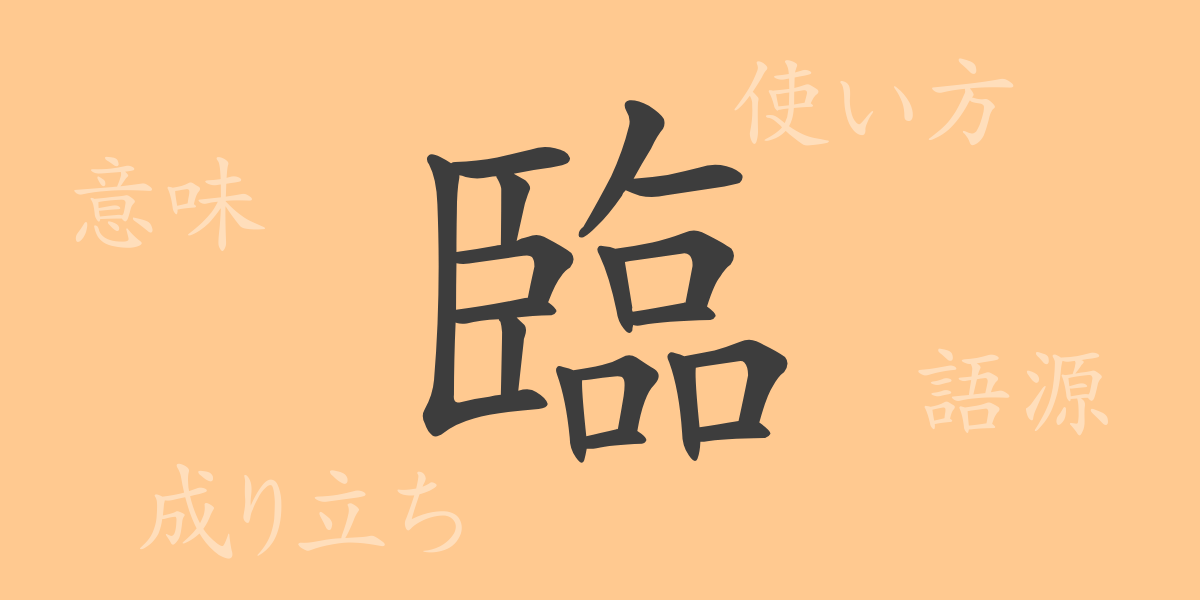One of the key elements that contribute to the rich expressiveness of the Japanese language is kanji (kanji). These complex characters with deep meanings play a unique role in Japanese culture and language. This time, we shine a spotlight on the commonly used kanji “臨” (rin), exploring its origin, meaning, usage, and even idioms and proverbs that feature this fascinating character.
Origin of “臨” (rin)
The kanji “臨” (rin) is a character that originated from ancient China, originally depicting the act of overlooking from a high place. The view from a mountain or a castle, which allows one to see far into the distance, came to symbolize a broad perspective and the ability to see things as a whole. From this background, “臨” (rin) evolved to mean “to see” or “to observe,” and further expanded to include meanings such as “to be present” or “to face a situation.”
Meaning and Usage of “臨” (rin)
The kanji “臨” (rin) is used to mean “to face,” “to be present,” or “to observe.” It is particularly used in important or critical situations. For example, in the idiom “臨機応変” (rinkiohen), it means to respond appropriately to changing circumstances, making it suitable for describing situations that require flexible responses and quick judgments.
Reading, Stroke Count, and Radical of “臨” (rin)
The kanji “臨” (rin) is one of the commonly used kanji taught in Japanese schools.
- Reading: The on’yomi (音読み) reading is “リン” (rin), and the kun’yomi (訓読み) reading is “のぞむ” (nozomu).
- Stroke Count: It consists of 18 strokes in total.
- Radical: The radical is “臣” (shin).
Idioms, Phrases, and Proverbs Using “臨” (rin) and Their Meanings
There are numerous idioms, phrases, and proverbs that include the kanji “臨” (rin), each showcasing the richness of Japanese expression. For example, “臨機応変” (rinkiohen) means to respond flexibly according to the situation, “臨場感” (rinjokan) refers to a sense of presence as if you were actually there, “臨終” (rinju) denotes the moments just before a person passes away, and “臨時” (rinji) is used to describe special occasions that differ from the usual. These idioms and phrases are frequently used in everyday life.
Summary of “臨” (rin)
The kanji “臨” (rin), as its form and meaning suggest, embodies the concept of overseeing from a high place and seeing the big picture. By focusing on just this one kanji, one can feel the profound depth of the Japanese language. Additionally, idioms and phrases that use “臨” (rin) play an important role in our language, and using them appropriately allows for richer expression. As a commonly used kanji, understanding its readings and meanings correctly can enhance daily communication.

























